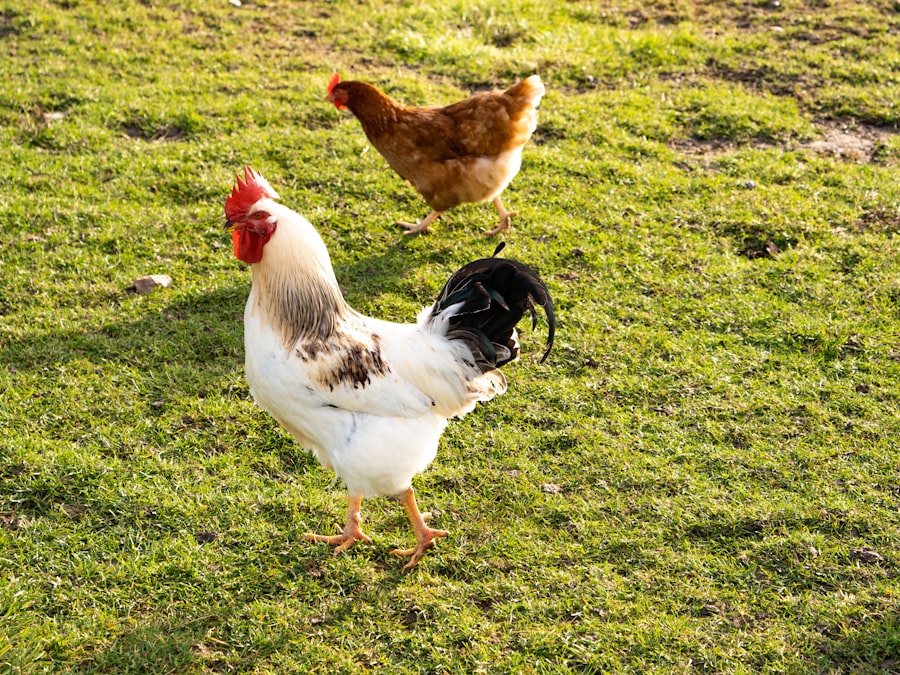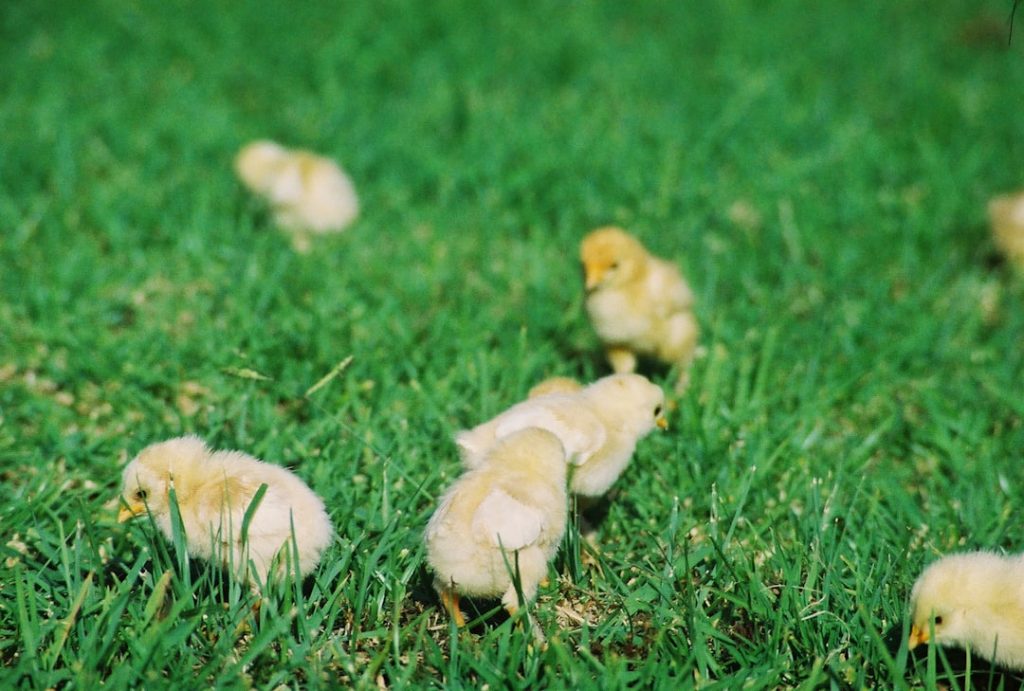When selecting chicken breeds for natural raising, it is essential to consider specific traits that contribute to success. Breeds known for their broodiness and strong maternal instincts are ideal for this purpose. Orpingtons, Silkies, and Cochins are popular choices due to their tendency to go broody and their dedication to hatching and raising chicks.
Conversely, breeds such as Leghorns and Easter Eggers, which are not known for broodiness, may be less suitable for natural raising. Temperament and hardiness are also important factors to consider. Naturally calm and docile chickens are more likely to thrive in a natural raising environment.
Additionally, selecting breeds that are well-adapted to the local climate and environment helps ensure the health and well-being of the flock. Careful breed selection is crucial for setting up a successful naturally raised flock. By considering factors such as broodiness, maternal instincts, temperament, hardiness, and adaptability to local conditions, poultry keepers can increase the likelihood of their chickens thriving in a natural raising environment.
Thorough research and thoughtful selection of breeds tailored to specific needs and conditions are key to achieving success in natural chicken raising.
Table of Contents
- 1 Providing a Safe and Comfortable Environment for Brooding
- 2 Allowing the Hen to Incubate and Hatch Eggs Naturally
- 3 Ensuring Proper Nutrition for Both the Hen and Chicks
- 4 Protecting Chicks from Predators and Other Dangers
- 5 Allowing Chicks to Integrate with the Flock at their Own Pace
- 6 Understanding the Natural Behaviors of Chickens and How to Support Them
- 7 FAQs
- 7.1 What does it mean to raise chicks naturally?
- 7.2 What are the benefits of allowing hens to raise chicks naturally?
- 7.3 How can I encourage my hens to brood and raise chicks naturally?
- 7.4 What should I consider when allowing hens to raise chicks naturally?
- 7.5 What are some common challenges when allowing hens to raise chicks naturally?
Key Takeaways
- Select breeds that are known for their natural brooding and mothering instincts
- Provide a warm, draft-free, and predator-proof space for brooding
- Allow hens to incubate and hatch eggs in a quiet and secluded area
- Ensure hens and chicks have access to a balanced diet with proper nutrients
- Implement measures to protect chicks from predators and other potential dangers
Providing a Safe and Comfortable Environment for Brooding
Providing a Safe and Secluded Space
When a hen goes broody, she will need a quiet and secluded space where she can safely incubate her eggs. This space should be free from drafts and predators, and should provide the hen with a sense of security and privacy.
Creating a Comfortable Nesting Area
A broody hen will also need a comfortable nesting area where she can safely hatch and care for her chicks. This nesting area should be lined with clean, dry bedding to provide a warm and cozy environment for the hen and her chicks. In addition to providing a safe and comfortable nesting area, it’s important to ensure that the brooding space is well-ventilated and free from excessive heat or cold.
Ensuring Proper Ventilation and Nutrition
Proper ventilation will help prevent the buildup of harmful gases and maintain a healthy environment for the hen and her chicks. It’s also important to provide access to fresh water and nutritious food to support the hen’s nutritional needs during brooding. By creating a safe and comfortable environment for brooding, you can help ensure the health and well-being of your hen and her chicks as they begin their journey together.
Allowing the Hen to Incubate and Hatch Eggs Naturally

Allowing the hen to incubate and hatch eggs naturally is an important part of natural raising. When a hen goes broody, she will instinctively seek out a quiet and secluded space where she can safely incubate her eggs. It’s important to respect the hen’s natural instincts and provide her with the space and privacy she needs to successfully hatch her eggs.
This means allowing the hen to remain undisturbed in her nesting area, free from unnecessary handling or interference. During the incubation period, the hen will carefully tend to her eggs, keeping them warm and turning them regularly to ensure proper development. It’s important to provide the hen with access to fresh water and nutritious food during this time to support her nutritional needs.
As the hatch date approaches, it’s important to continue to provide a quiet and stress-free environment for the hen as she prepares to welcome her new chicks into the world. By allowing the hen to incubate and hatch eggs naturally, you can support her natural instincts and help ensure the health and well-being of both the hen and her chicks. Allowing the hen to incubate and hatch eggs naturally is an important part of natural raising.
This means providing the hen with a quiet and secluded space where she can safely tend to her eggs without interference. It’s important to respect the hen’s natural instincts and provide her with access to fresh water and nutritious food during this time. By allowing the hen to incubate and hatch eggs naturally, you can support her natural instincts and help ensure the health and well-being of both the hen and her chicks.
Ensuring Proper Nutrition for Both the Hen and Chicks
Ensuring proper nutrition for both the hen and her chicks is essential for their health and well-being during the natural raising process. During brooding, it’s important to provide the hen with access to fresh water and nutritious food to support her nutritional needs. This includes high-quality layer feed supplemented with additional protein sources such as mealworms or scrambled eggs to support the hen’s increased energy requirements during brooding.
Once the chicks have hatched, it’s important to provide them with access to a high-quality chick starter feed that is specifically formulated to meet their nutritional needs. This feed should be rich in protein, vitamins, and minerals to support healthy growth and development. In addition to chick starter feed, it’s important to provide the chicks with access to fresh water at all times to prevent dehydration.
As the chicks grow, it’s important to gradually transition them to a grower feed that is formulated to support their nutritional needs as they continue to mature. Providing access to fresh water and nutritious food is essential for supporting the health and well-being of both the hen and her chicks throughout the natural raising process. Ensuring proper nutrition for both the hen and her chicks is essential for their health and well-being during the natural raising process.
This includes providing the hen with high-quality layer feed supplemented with additional protein sources during brooding, as well as providing the chicks with access to a high-quality chick starter feed rich in protein, vitamins, and minerals. As the chicks grow, it’s important to transition them to a grower feed that is formulated to support their nutritional needs as they continue to mature. By carefully considering their nutritional needs, you can help ensure that both the hen and her chicks have the best possible start in their natural raising journey.
Protecting Chicks from Predators and Other Dangers
Protecting chicks from predators and other dangers is essential for their safety and well-being during the natural raising process. Chicks are particularly vulnerable to predators such as raccoons, foxes, and birds of prey, so it’s important to take steps to secure their environment and protect them from harm. This includes providing a secure coop or brooding area that is predator-proof, with sturdy walls, a secure roof, and hardware cloth over windows or vents to prevent entry by predators.
In addition to securing their living space, it’s important to provide supervision and protection for the chicks when they are allowed outside to explore. This may include using temporary fencing or netting to create a safe outdoor area for the chicks, or supervising them closely while they free-range in a secure area. It’s also important to be mindful of other potential dangers such as extreme weather conditions or toxic plants, and take steps to protect the chicks from these hazards.
By taking proactive measures to protect chicks from predators and other dangers, you can help ensure their safety and well-being during the natural raising process. This includes providing a secure living space, supervising them when they are allowed outside, and being mindful of other potential hazards that could pose a risk to their health. Protecting chicks from predators and other dangers is essential for their safety and well-being during the natural raising process.
This includes providing a secure living space that is predator-proof, as well as supervising them when they are allowed outside to explore. By taking proactive measures to protect them from harm, you can help ensure that they have the best possible start in their natural raising journey.
Allowing Chicks to Integrate with the Flock at their Own Pace

Gradual Integration
As the chicks grow older, they will naturally begin to explore their surroundings and interact with other members of the flock. It’s essential to allow them to do so at their own pace, without forcing them into unfamiliar situations or interactions before they are ready.
Supervised Introductions
When introducing the chicks to the adult members of the flock, it’s crucial to do so in a neutral territory where both groups can interact without feeling threatened or territorial. Close monitoring of these interactions is necessary to prevent aggression or bullying from occurring.
A Positive Experience
By allowing chicks to integrate with the flock at their own pace, you can ensure they have a positive experience as they become part of the larger flock. This approach enables them to develop social skills and establish their place within the flock in a natural and stress-free manner.
Understanding the Natural Behaviors of Chickens and How to Support Them
Understanding the natural behaviors of chickens is essential for successful natural raising. Chickens are social animals with complex behaviors that are shaped by their natural instincts and social hierarchy within the flock. By understanding these behaviors, you can better support your chickens’ physical and emotional well-being.
For example, chickens have a strong instinctual drive to establish a pecking order within their flock. This social hierarchy helps maintain order within the group but can also lead to aggression or bullying if not managed properly. By providing plenty of space, enrichment activities, and multiple feeding stations, you can help reduce competition among flock members and minimize aggressive behaviors.
Chickens also have natural instincts for dust bathing, foraging for food, roosting at night, and seeking out secluded nesting areas when broody. By providing opportunities for these natural behaviors within their environment, you can help support your chickens’ physical health and emotional well-being. By understanding the natural behaviors of chickens and how to support them within your flock, you can create an environment that promotes their overall health and happiness.
This approach not only benefits your chickens but also contributes to a more harmonious living situation for both you as a caretaker and your feathered friends. Understanding the natural behaviors of chickens is essential for successful natural raising. By understanding behaviors such as establishing a pecking order within their flock, dust bathing, foraging for food, roosting at night, seeking out secluded nesting areas when broody, you can better support your chickens’ physical health and emotional well-being within your flock.
In conclusion, natural raising of chickens involves careful selection of breeds suited for this purpose, creating safe environments for brooding hens, allowing hens to incubate eggs naturally while ensuring proper nutrition for both hens and chicks, protecting chicks from predators while allowing them time to integrate into the flock at their own pace while understanding their natural behaviors in order to support them effectively within your flock. By following these guidelines carefully you can ensure that your chickens thrive in a natural raising environment while promoting their overall health and happiness.
If you’re interested in learning more about natural chicken rearing, you might also want to check out this article on mating season for turkeys. It provides valuable information on the breeding habits of turkeys and how to ensure a successful mating season for your flock.
FAQs
What does it mean to raise chicks naturally?
Raising chicks naturally means allowing mother hens to hatch and raise their own chicks without human intervention. This includes letting the hen incubate the eggs, hatch the chicks, and care for them as she would in a natural environment.
What are the benefits of allowing hens to raise chicks naturally?
Allowing hens to raise chicks naturally promotes natural behaviors, provides the chicks with the best care and protection, and reduces stress on both the hen and the chicks. It also allows for a more sustainable and self-sufficient flock.
How can I encourage my hens to brood and raise chicks naturally?
You can encourage broodiness in hens by providing a quiet, secluded nesting area with comfortable bedding. Once a hen goes broody, you can allow her to incubate and hatch her eggs in a safe and secure environment.
What should I consider when allowing hens to raise chicks naturally?
When allowing hens to raise chicks naturally, it’s important to provide a safe and predator-proof environment for the hen and her chicks. You should also ensure that the hen has access to proper nutrition and clean water throughout the process.
What are some common challenges when allowing hens to raise chicks naturally?
Some common challenges when allowing hens to raise chicks naturally include predation, disease, and potential aggression from other flock members. It’s important to monitor the hen and her chicks closely and address any issues that may arise.
Meet Walter, the feathered-friend fanatic of Florida! Nestled in the sunshine state, Walter struts through life with his feathered companions, clucking his way to happiness. With a coop that’s fancier than a five-star hotel, he’s the Don Juan of the chicken world. When he’s not teaching his hens to do the cha-cha, you’ll find him in a heated debate with his prized rooster, Sir Clucks-a-Lot. Walter’s poultry passion is no yolk; he’s the sunny-side-up guy you never knew you needed in your flock of friends!







